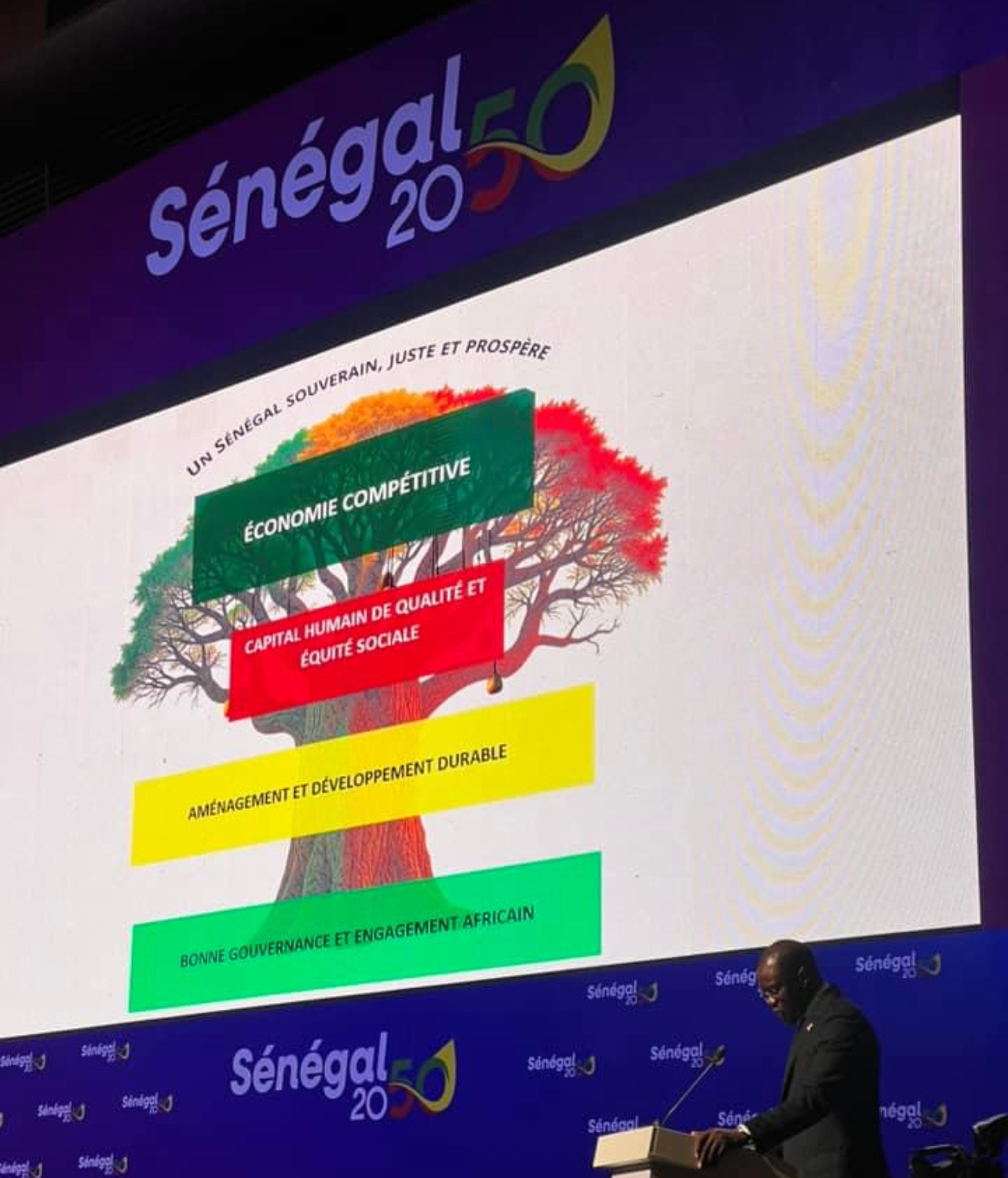Vision Senegal 2050, a glaring lack of ambition!

The government of Prime Minister Ousmane Sonko has decided to throw the Emerging Senegal Plan, which, since 2014, has guided public policies in this country, off the table. Moreover, the head of government indicated that the economic figures, as presented by his predecessors, were simply “disguised” to embellish an economic situation that was not far from disaster. To illustrate the situation as he found it, he said to the world: « We thought we would access the ground floor of the house, while we were on the fourth basement. » Without explaining the need he felt, with members of his government, to present such a gloomy picture of the country’s situation, he said that the Court of Auditors would certainly confirm the figures indicated in this « Report on the situation of public finances » for the period 2019-2023. A good part of this work was carried out by members of the General Inspectorate of Finance (IGF). We recall – just a small digression – that another work of the IGF, the famous report that he used to incriminate the former minister Mame Mbaye Niang in the Prodac « scandal », and which ultimately led to Ousmane Sonko being convicted of defamation, this famous report, it is said, was at one point disowned by its initiators. However, it seems that it will be resurrected shortly, no doubt to help resume Sonko’s trial. This IGF seems, for some time, doomed to be the basis of major controversies in the State.
Read the column – The « Project » in La La Land
This is the only institution the government has turned to, to support the figures it wanted to establish its controversy with the former regime of President Macky Sall. Neither the National Agency for Statistics and Demography (ANSD) nor the Directorate of Forecasting and Economic Studies (DPEE), among other economic and financial research services of the State, have ventured to support the statements of Mr. Sonko and his ministers. Worse still, even his document intended to replace the PSE, namely the new benchmark, “Senegal 2050; National Agenda for Systemic Transformation,” does not seem to give credence to these figures.
[themoneytizer id= »124208-2″]
This document aims to achieve a growth rate of 6 or 7% of GDP by 2050. And thanks to this, it plans to triple per capita income, from 1,500 US dollars to 4,500 USD. It also plans to « significantly reduce poverty and improve social and territorial inclusion ». This is his vision of a « sovereign, just and prosperous Senegal ». The Prime Minister assured us that this is the way out of the old paradigms of growth without development, because of an outward-looking economy, which exports raw products abroad, and also imports all its consumption from abroad.
Read the column – Public Finances: Beyond the figures
It is quite extraordinary, with such an ambitious vision, to give only such weak prospects for the period 2025-2029. One of the rare things where the government wants to be dynamic is the reduction of the deficit. In the reference document, it is stated that « the budget deficit is reduced to 3% of GDP from 2025 and maintained at this level throughout the period 2025-2029 ». Which will be a feat worthy of the Guinness books. Prime Minister Sonko claimed, with his Minister of the Economy, that « The budget deficit was announced at an average of 5.5% of GDP over the period 2019-2023. But in reality, it was on average 10.4%, almost double. » From one year to the next, reducing it to 3% would be a feat never accomplished, even in the most regulated economic systems. It would even be quite unexpected, in that the International Monetary Fund, during its last quarterly review, which predicts a deterioration of the economy, sees the budget deficit go from the « 3.9% forecast in the initial budget, to more than 7.5. » The services of Bassirou Diomaye and Ousmane Sonko, who tell us that the deficit is currently at more than 10% of GDP, beyond the most pessimistic statements of the IMF, assure us that they can reduce it by snapping their fingers, in a few months. This, in a most sluggish economic environment. The good side with the figures is that, whatever we can make them say, they remain figures and display the truth that they indicate. The Prime Minister will have to tell us then, how with his Transformation Agenda whose lack of ambition or « realism », as you like, can, ultimately, obtain better results than Macky Sall’s PSE.
It should be recalled that the latter, in his Pap3, displayed that his vision is that of an « emerging Senegal in 2035, with a united society, in a State of Law ». It reflects a desired future defined on the basis of the concerns and aspirations of the populations. This vision postulates greater economic efficiency, while promoting respect for the principles of sustainability, Good governance – with a particular emphasis on ethics and virtue in the management of public affairs and in attitude and behaviour ». He predicted a GDP rate of 9.8%, before moving to double digits over the next 5 years.
Read the column – Sonko, the dead of Thiaroye and the shadow of Diomaye
The vision of a just and prosperous Senegal to come is to « promote endogenous and sustainable development, driven by empowered, viable and competitive territories, and laying the foundations for economic sovereignty ». A program that is broken down into 4 strategic axes that were discussed at length at the time, and to which we will probably return soon. The question for now is to try to understand how, with more resources, Ousmane Sonko and Diomaye Faye can show so little ambition for their country, especially compared to someone to whom they once promised the execution post for lack of ambition?
By Mohamed GUEYE / mgueye@lequotidien.sn

